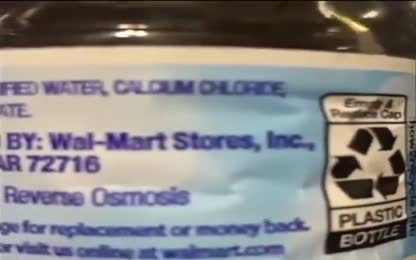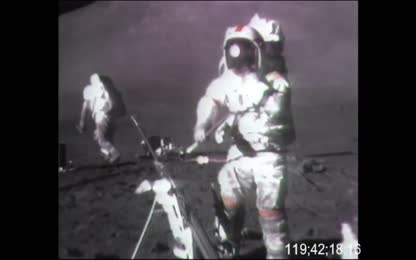Advertisement
The memory of water
The memory of water
- Category: Experience,Experiment/Lab Rat/Test /Trial,Happiness
- Duration: 04:13
- Date: 2022-12-29 20:01:30
- Tags: no-tag
0 Comments
Video Transcript:
Dr. Imato's laboratory does research on water samples which are subjected to various forms of outside influence. The impressions made upon the water are recorded by swiftly freezing it in a cryogenic chamber. This is what water heated in a microwave oven looks like. This is the effect of a mobile telephone. Somebody said, thank you to this water. Excuse me. You disgust me. Let us see how this type of water affects human blood. The doctor is drawing blood from a patient's finger. Using a special microscope, we shall be able to see the condition of her body from this drop. These are red blood cells and they have lost their electrical charge so they are all stuck together in a formation called a rulo. Here is a huge simplest. Simplests are associated with heart disease and arthritis and lung disease and many other conditions that could be coming in the future. The doctor asks the patient to drink a small amount of structurized water. After 12 minutes, the doctor again draws blood from the patient and studies it. You can see that the cells become buoyant, they become slippery and they have their electrical charge so they repel each other. That allows them to carry oxygen and it means that we are changing the pH of the blood back to an aerobic environment rather than an anaerobic environment. I think that is really amazing that a drinking water could do that. In 1995, Dr. Emoto Masaru was the first one to record musical impressions on water. In Dr. Emoto Masaru's laboratory, they allowed water to listen to music after which they flash froze the water and then under the microscope they could clearly see the crystals that the water had formed. Here is what the music of Bach looks like. Mozart? Beethoven? Dr. Emoto has conducted another interesting experiment. He placed rice into three glass beakers and covered it with water. And then every day for a month he said, thank you to one beaker, urine idiot to the second. And the third one he completely ignored. Here one month the rice that had been thanked began to ferment, giving off a strong pleasant aroma. The rice in the second beaker turned black. And the rice that was ignored began to rot. Dr. Emoto thinks that this experiment provides an important lesson, especially with regard to how we treat children. We should take care of them, give them attention and converse with them. In difference does the greatest harm.









 Donate
Donate







